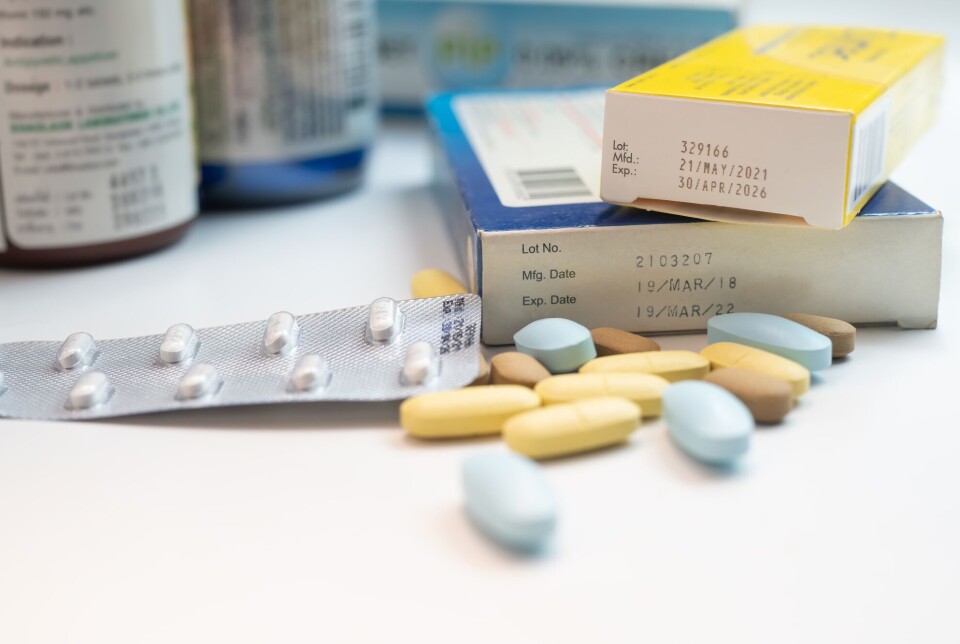
What actually happens when medicines expire?
Some medications can become dangerous to use after their expiration date. However, we likely also discard a lot of medicine that is perfectly fine.
Most of us have experienced this situation:
You get a sudden headache or are caught off guard by a bout of flu. You find a packet of paracetamol that expired in 2021 at the bottom of your cupboard. The pills still look perfectly usable.
But can you take them?
Most viewed
What actually happens to the tablets after the expiration date? Do they become less effective? Or could they be dangerous?
And how long after the expiration date do these problems occur? Is the medicine unusable a week later, or do we have a few months of leeway?
It turns out that some questions regarding expiration dates have very clear answers. For instance, we can be sure that medicines are effective and safe before their expiration date. This has been thoroughly tested.
But after the expiration date, things are less certain. In many cases, no one has actually checked how long medications remain usable.
The rare studies that do exist show huge differences. Some medicines quickly became ineffective or even dangerous, while others were just as good several decades after their expiration date.
Substances break down
Most of us are used to dealing with expiration dates on food. In addition to the expiration date, we use both reason and our senses to determine if food is still edible. Mould or an unpleasant odour can indicate that the food has gone bad and has begun to decompose.
The problem is that substances in medications also break down over time, without us necessarily being able to detect it. These are gradual chemical processes that begin as soon as the medicine is manufactured.
The progression depends on both the substances involved and how the medicine is stored. But after a certain time, enough of the original substances may have decomposed to change the properties of the medicine.
An obvious consequence of this is that the medication may lose effectiveness simply because there is less of the active ingredient remaining.
This is not necessarily a serious problem. For instance, it's not a big deal if your allergy pill or headache tablet is a little less effective. However, for some medications, precise dosing is crucial, or there could be serious consequences if the medicine does not work. In those cases, older products can become dangerous.
EpiPen and antibiotics
One example of this is the EpiPen – pre-filled syringes used to treat potentially fatal allergic reactions.
A study indicated that the active ingredients in this medication began to lose their effectiveness just one month after the expiration date, according to an article from Harvard Medical School.
And if such a medication loses its effectiveness, the consequences could be fatal.
Antibiotic medications that work poorly can also be a serious problem. One aspect is that the medication may not stop the infection. Another concern is that weaker antibiotics can help bacteria develop antibiotic resistance.
Breaks down into other substances
Other processes can occur within medications that render them unsafe to take.
“Degradation can create products that may have different properties than the active substance,” Tone Agasøster writes in an email to sciencenorway.no.
She is a senior adviser for the Norwegian Medical Products Agency.

"This can result in more toxic compounds, which may cause side effects," she writes.
For instance, an older study suggested that an earlier version of the antibiotic tetracycline could be broken down into substances that could cause kidney problems, according to the Harvard Medical School and the website drugs.com.
“The properties of the medication can also change, such as how quickly the active ingredient in a tablet dissolves and becomes available for absorption in the body,” Agasøster writes.
Another issue is that bacteria can start growing in the medications.
Some medicines have added preservatives to prevent bacterial growth. This is true for certain types of eye drops. But over time, the preservatives can break down and lose their effectiveness.
"Generally speaking, liquid products like mixtures may be more prone to decomposition than solid products like tablets and capsules," she writes.
We
probably discard a lot of usable medicine
Clearly, there are real dangers in using medications past their expiration date.
But on the other hand, evidence suggests that expiration labelling leads us to discard medicines that are actually perfectly fine.
This happens despite shortages of various medications, billions spent on medicine each year, and discarded drugs polluting the environment.
Thorough testing under different storage conditions
When a pharmaceutical company seeks approval to market a medication, they must document how well the active ingredients hold up over time. The company tests degradation under various storage conditions.
"The medicine is stored at different temperatures and with or without light exposure," Agasøster writes.
“The shelf life of the medication is determined based on these studies, which also assess if the drug requires protection from light or heat."
Guaranteed quality before the expiration date
For many medicines, the shelf life is around five years at room temperature, while others have a shorter shelf life and must be stored in a refrigerator.
The expiration date indicates that properly stored medicine is guaranteed to be effective before that date.
However, the expiration label does not specify whther some medications can last longer. Pharmaceutical companies are not required to investigate the actual shelf life.
As a result, this issue often remains unexamined.
But there are exceptions. One of the few studies that has been carried out yielded surprising results:
Some common medications remained effective for decades after their expiration date.
Examined the Defense Department's expired medications
The study was conducted by the US Food and Drug Administration (FDA) as part of the Shelf-Life Extension Program, started by the US Department of Defense in the 1980s.
The issue was that the US military had large quantities of medications in storage, and drugs worth billions of dollars had to be discarded because they were past their expiration date.
The Department of Defense simply wanted to determine if any of these drugs could be used after their expiration date, thus saving the military expenses.
Researchers from the FDA tested 122 common medications. The results were likely well-received by their client.
Many medications still good years past expiry
Nearly 90 per cent of the medicines tested lasted over a year longer than their expiration date. On average, the medication's expiration date could be extended by over five years.
Some remained in excellent condition. Iodine tablets – the kind that can offer protection in the event of nuclear disasters – were still fine after over 20 years.
Another study tested medicines that had expired up to 40 years earlier. Many of them still retained over 90 per cent of the active ingredients.
On the other hand, research has also shown that some medicines deteriorate quickly. Aspirin, nitroglycerin, insulin, and liquid antibiotics should not be used past their expiration date, according to the Harvard Medical School article.
It is also important to remember that the drugs tested by the FDA were stored under ideal conditions.
It is well known that factors like temperature, light, and humidity can significantly impact the breakdown of substances in medicines. Medications would likely not last very long if stored on a windowsill or in the glove compartment of a car.
Impossible to know
In summary, some of the expired medications in your cupboard might still be perfectly fine, but it is completely impossible for you as a consumer to know for sure which ones are safe.
And the situation is unlikely to change anytime soon.
In 2015, a group of researchers called for requiring pharmaceutical companies to conduct ongoing tests of the durability of their products. This would allow them to adjust the expiration dates if studies showed that medications last longer.
However, for now, the general advice is clear: follow the expiration labelling and return expired medications to the pharmacy.
"Medicines should normally be used within their approved shelf life. But if you're at your cabin and get a headache and only have ‘vintage paracetamol’ available, you can use those," Agasøster writes.
———
Translated by Nancy Bazilchuk
Read the Norwegian version of this article on forskning.no






































